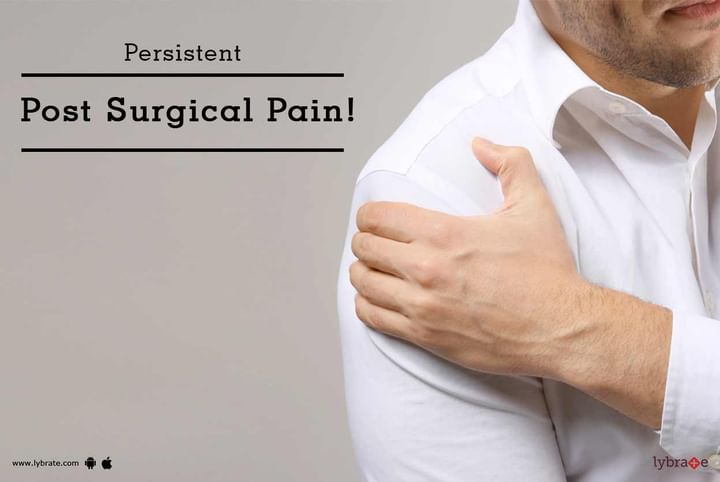Persistent Post Surgical Pain!
Post surgical pain is common after any surgery. It usually abates as one recovers and healing occurs. Pain persisting beyond the period of healing is termed as persisting postsurgical pain or Chronic Postsurgical Pain (CPSP). Generally a period of 3 months is considered adequate for healing and is used when defining CPSP.
Some use up to 6 months period post surgery, prior to labelling the pain as CPSP. To diagnose pain as CPSP:
- It should not have been present before surgery or should have different characteristics,
- It should be localized to the surgical site or a referred area.
- Other possible causes of the pain are excluded (e.g., cancer recurrence, infection)
The incidence of CPSP is variable and in a large study it was found that roughly one or two of 10 surgical patients get CPSP with severe intolerable pain in one of every 100 operations.
Some surgeries are more prone to lead to CPSP and these include:
- Amputation
- Thoracotomy
- Inguinal hernia repair
- Caesarean section
- Sternotomy as in cardiac bypass surgery
- Knee Arthroplasty (replacement)
- Mastectomy
- Hysterectomy (removal of uterus)
Predicting Persistent Post Surgical Pain:
Since pain following a surgery is common, it becomes difficult to predict which pain is likely to persist and turn chronic. Some risk factors where extra vigilance is required include preoperative operative site pain, severe acute postoperative pain, other chronic preoperative pain conditions (e.g., headache), and co morbid stress symptoms such as anxiety or emotional overload. Numerous other factors, such as genetics, psychological and emotional factors, chemotherapy, nerve injury etc, may have an impact on development of CPSP. A significant proportion of patients with CPSP have nerve (neuropathic) pain component.
Managing Persistent Post Surgical Pain:
- Conservative method - Includes physiotherapy, TENS and acupuncture
- Pharmacological method - Anti-neuropathic medicines including anti-convulsants, anti-depressants are commonly used to treat CPSP. Other drugs such as opioids, NSAIDs may also be utilized.
- Topical agents – This includes agents like lidocaine 5% patches and topical capsaicin cream.
- Interventional Treatments - In situations where the response to the above measures is inadequate, interventional treatments are considered. Early identification and management can be helpful in controlling CPSP. Interventional treatment options include:
- Peripheral Nerve Blocks
- Pulsed radiofrequency
- Scar injections
- Trigger point injections
- Cryotherapy
- Epidural injections and nerve root blocks



+1.svg)
